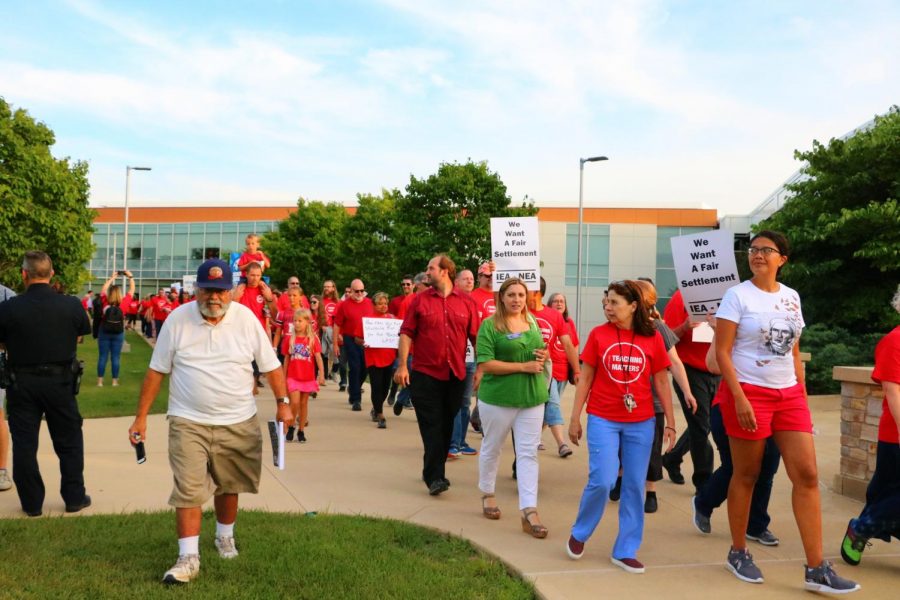Will COD’s fall semester make it to December?
The College of DuPage Faculty Association and community supporters protest before the Aug. 15 board of trustees meeting (photo by: Alison Pfaff)
August 29, 2019
College of DuPage’s fall semester has just begun, but there’s a possibility of it ending soon.
The College of DuPage Faculty Association (CODFA) has acknowledged the possibility of a strike to combat a standstill in negotiations with COD’s Board of Trustees. The threat arose from the board’s difficulty coming to a contract agreement for the faculty. If the strike were to occur, 304 faculty members would stop teaching.
While the board has publicly agreed to a mediation with CODFA to try to reach a contract agreement, no official statement has been issued to a very important party—COD’s students, especially because students contribute so significantly to the school’s income with tuition money.
The threat of a strike affects all students, and the fact that neither the board nor CODFA has released a statement explaining the possible impacts to students suggests the organizations are not thinking of students.
Without acknowledgment from either party, students are left in the dark, wondering what the consequences of this business disagreement can have on our futures. Will students aiming to transfer to a university acquire the credits they need to leave? If classes are canceled, will students receive refunds? How long can this strike play out? Will the threat of a strike affect enrollment?
Aside from fear and concern, the strike threat is also very frustrating to hear about.
Why did the board not move to resolve this before the school year? The lack of proactivity on their end specifically speaks poorly about the school as a whole. The school board knew the faculty contract was coming to an end. Would it not make sense to have been preparing a new faculty contract in the spring?
Another twist is that the school needed to bring in a mediator to help resolve the current roadblocks, which we also don’t know much about. What does the school’s need to pay a glorified argument-settler say about the level of professionalism at work in the higher levels of this institution?
The strike also raises a concern about future student enrollment. No student wants to attend a school where their graduation is at risk, especially at a two-year community college. The idea of attending a community college is largely based on gathering credits to get started on a higher degree. If classes need to be canceled because of a faculty strike, it is doubtful that students would continue to choose COD as the beginning of their higher education journey.
In the eyes of the students, the best solution to this strike threat is that a contract is worked out as soon as possible, or at the very least, a statement on how a strike will impact our studies.
The possible strike isn’t a secret, but there is no explanation for who this affects the most, which is the students, and that itself is an unacceptable truth for someone that pays money to study at COD.




















